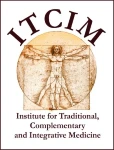
Akshay Bhambri - USA
Abstract of the presentation
Pluralistic Pathways to Health: Comparing Policies in Traditional and Integrative Medicines between Taiwan, India, China, and the USA
Co-authors: Dr. Bhaswati Bhattacharya, MPH, MD, PhD Clinical Assistant Professor of Medicine, Weill Cornell Medical College, New York
Branch: Other (TCIM Policy Researcher)
As health systems worldwide grapple with access to health, rising healthcare costs, aging populations, and the growing burden of chronic diseases, there is increasing interest in the potential of TCIM to supplement mainstream healthcare. Four diverse national health policies—Taiwan, India, China, and the USA—have integrated TCIM to varying levels into their formal healthcare systems. The health economics and policy analysis reveal a strong, yet contested, rationale for integrating TCIM within health systems still dominated by biomedical models.
Our analysis provides evidence for the often-polarized debate between biomedical orthodoxy and tradition-based medical systems by offering a nuanced evaluation of integrative health models using economic data and policy-based metrics. In Taiwan, TCM is institutionally recognized and embedded within the National Health Insurance system, providing robust reimbursement mechanisms for TCM and exemplifying the use of cost-effective traditional therapies such as acupuncture and herbal remedies. India’s AYUSH system is pluralistic yet fragmented; however, the widespread use of traditional medicine remains institutionally peripheral to the mainstream healthcare system. China offers a long-standing model of co-existence, in which TCM is deeply interwoven with the biomedical system under state oversight in public hospitals. In the USA, TCIM operates within a largely privatized system shaped more by demand than by coordinated federal policy.
Comparison between these four national contexts identifies key enablers and constraints for effective TCIM integration from policy and health economics standpoints. Implications for equity, access, and sustainability can be found in different integration models, from parallel coexistence to full systemic integration. TCIM can be a valuable adjunct in the pursuit of Universal Health Coverage goals, provided it is incorporated through evidence-informed, economically sound, and culturally sensitive policies. TCIM should be seen as a vital resource in reimagining resilient, affordable, and holistic healthcare systems within the coming decades.
Curriculum vitae
Akshay Bhambri is a distinguished ICS-Harvard-Yenching Doctoral Fellow and STS Fellow at the Harvard Kennedy School, currently pursuing doctoral research on the theme 'After the Revolution, After Colonialism: A Comparative Study of the Politics of Medical Knowledge in China and India.' He was also a senior visiting student at the Health Science Center, Peking University in Beijing. Previously, he dedicated considerable time to research and Mandarin language acquisition at the National Taiwan Normal University in Taipei. Bhambri's professional journey includes a role as a Research Manager at the Institute for Competitiveness, part of the global network of the Institute for Strategy and Competitiveness at Harvard Business School. During his tenure at the Institute for Competitiveness, he collaborated closely with various esteemed departments of the Government of India, including NITI Aayog, Ministry of Housing and Urban Affairs (MoUHA), Ministry of Health and Family Welfare, Ministry of Chemicals and Fertilizers, and the National Health Systems Resource Centre. He co-authored impactful reports such as 'Grassroots Soldiers: Role of Asha’s in Covid Management' (MoHFW), 'Export Preparedness Index 2021' (NITI Aayog), and 'Urban Outcome Framework 2022' (MoUHA). Driven by a profound commitment to research and action, his focus spans across diverse domains encompassing Politics of Knowledge in Traditional and Alternative Medicine, Science, Technology and Society (STS), Development Studies, and Public Policy. His extensive research experiences have traversed prestigious institutions like the Institute of Development Studies, University of Sussex, Water Aid, and ICSSR. Moreover, Bhambri's hands-on involvement in rigorous fieldwork and comprehensive research initiatives has expanded across regions including Punjab and Uttar Pradesh in India; Taiwan; Beijing and Shanghai in China; and the United States—specifically California and New York. His unwavering dedication and multifaceted expertise underscore his invaluable contributions to academia and society at large.
Please note that some of the texts also include machine-generated translations.





